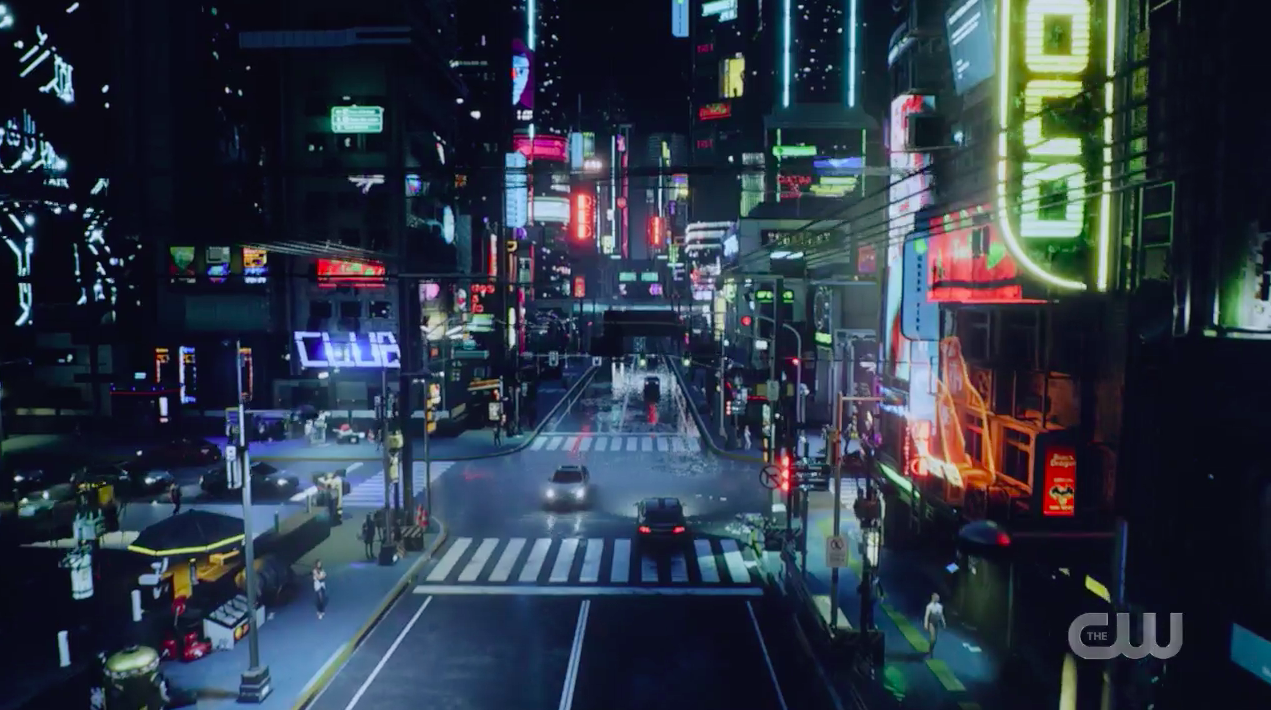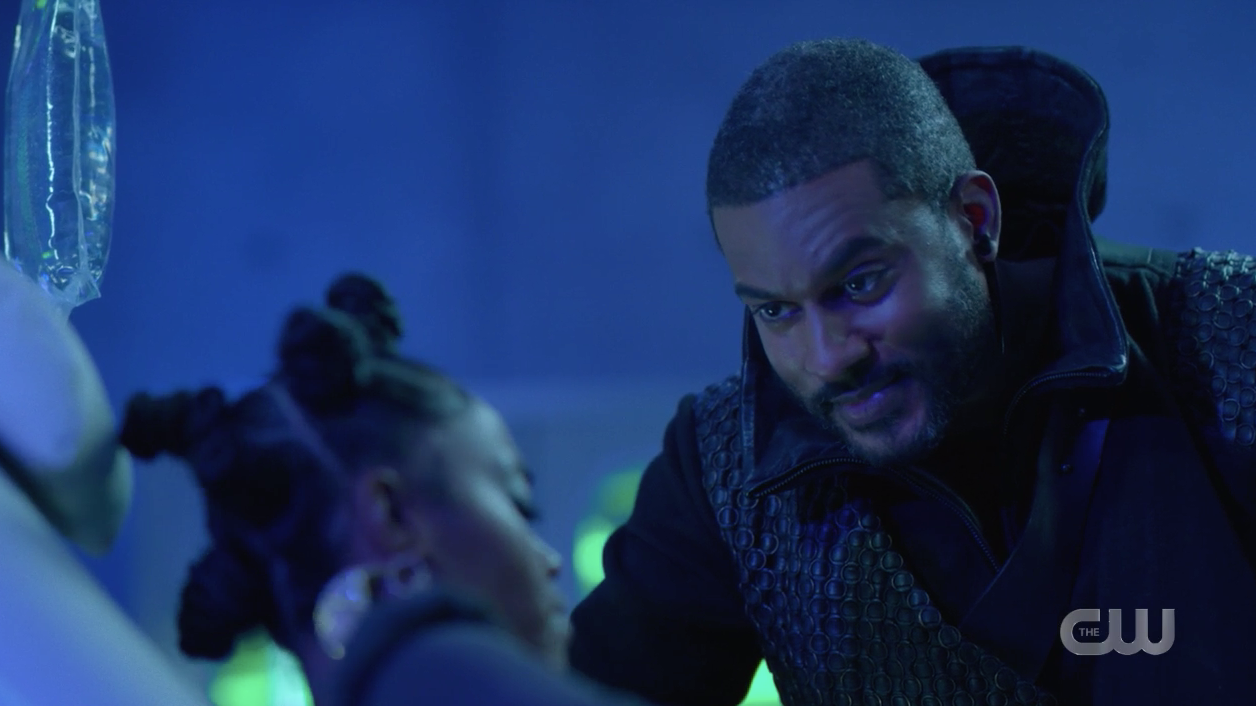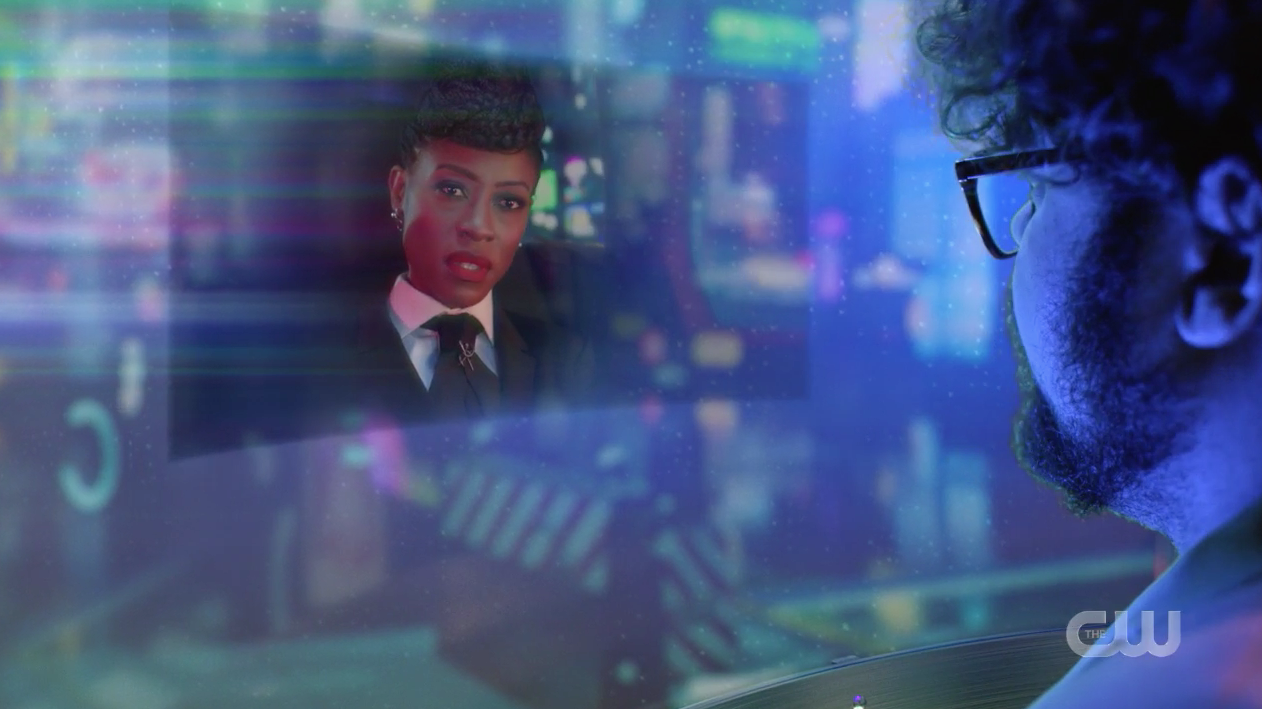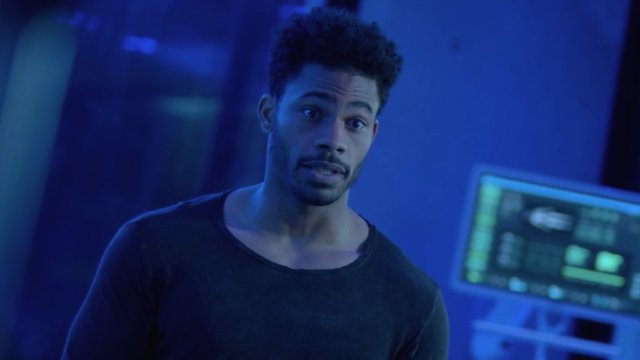Though the CW’s Black Lightning may be ending, the unanswered questions about characters like Khalil (Jordan Calloway) have turned out to be the network’s secret weapon in fleshing out a new chunk of a recently unified Earth Prime. While series sometimes like to be coy when they’re working backdoor pilots for spinoffs into their mid-season arcs-in-progress, last night’s episode of Black Lightning, “Painkiller,” could reasonably be called “The Khalil Show” in the best possible sense of the phrase.
As a love-interest-turned-villain-turned-tortured-antihero, Khalil was an interesting choice out of Black Lightning’s considerably large cast of supporting characters to become the star of a solo series based on a superhero family show. Removed from the immediate orbit of the Pierce family, the CW’s Khalil could easily become a character with little active connection to a pre-existing place within the Arrowverse, but “Painkiller” very smartly sets the stage by tying Khalil’s future to an unexpected person from his past.
[referenced id=”1680230″ url=”https://gizmodo.com.au/2021/03/black-lightning-is-breaking-bad-and-burning-bright/” thumb=”https://gizmodo.com.au/wp-content/uploads/2021/03/17/dhrq07iegvzylig7hqlc-e1615934386803-300×143.jpg” title=”Black Lightning Is Breaking Bad and Burning Bright” excerpt=”In Black Lightning’s third season, the city of Freeland became a new kind of war zone as the American Security Agency and the nation of Markovia set out to turn our heroes’ hometown into a profitable source for the world’s growing demand for living, metahuman weapons. Together with his vigilante…”]
The episode opens with Khalil reminiscing about the events that brought him to the Akashic Valley, a gleaming city of neon and dramatic camera angles somewhere close, but not too close, to Freeland, where Anissa Pierce and Grace Choi just so happen to be venturing for their honeymoon. Khalil and Anissa’s relatively grounded natures were always something that worked, but stood out in Black Lightning’s four-season metahuman family drama that’s journeyed into the upper limits of the atmosphere and across dimensions.“Painkiller” pulls both characters in a new direction that doesn’t change them so much as it explores new aspects of their strengths and identities in a fresh setting.

For the newlyweds, Akashic Valley’s an escape from the wars at home that kept them from being able to build a life together. For Khalil, it became a place where he could reinvent himself and continue working to find an inner peace capable of neutralising Painkiller, a separate, murderous identity that lives inside his mind. After arriving at a futuristic hotel in a driverless car — the bulk of which is created using the modern equivalent of CGI plucked from Janet Jackson’s “Doesn’t Really Matter” music video — Anissa and Grace head out for a night on the town that ends with the couple being separated, ambushed, and captured by two different groups of people.
After Grace is kidnapped by someone working for a mysterious new group of villains while in the bathroom by herself, it’s Khalil who confronts Anissa, and few words need to be exchanged before the two empowered people come to blows. Durable and strong as Anissa’s metagene makes her, she still has no defence for Khalil’s Painkiller toxin, which he can now offensively wield with much more control than in previous appearances by simply making skin-t0-skin contact with someone. Even though Khalil doesn’t want to harm Anissa — who he knows through her younger sister, Jennifer (they used to date) — Painkiller does, and in moments where the two identities are at odds with one another, “Painkiller” moves inside their mind-space in order to show you their confrontations firsthand.
Between its near-future city that’s apparently full of evil criminals and its focus on a man fighting against the programming that turned him into a superpowered killer, this episode bears more than a passing resemblance to The Falcon and the Winter Soldier, particularly with Khalil and Painkiller’s characterisations. Khalil’s goal isn’t to kill Anissa as he grabs her and lets his poison knock her out, but the story leaves it unclear just what his larger motivations for intervening in her life are. However, it is revealed, in the little time that Khalil’s been living in Akashic Valley, he’s found the means to build a decked out vigilante pad where he surveils the city while with the help of Philky (Insecure’s Alexander Hodge), a recovering alcoholic and tech expert, and Cousin Donald (former Oakland Raiders free agent James Roch), a marine vet who now specialises in healing the wounded.

Because of the sudden series of disorienting events, or perhaps because it resembles her father’s own superhero hideout, Anissa isn’t immediately alarmed when she comes to in Painkiller’s HQ and meets Donald properly for the first time. It’s only the Painkiller poison’s lingering effects that keep her from charging Khalil once she realises he’s the one who brought her there, something that understandably makes her suspect that he has something to do with Grace’s disappearance. With Anissa still weakened, she’s in no state to go looking for Grace, and after some prodding from his colleagues, Khalil steps up to go searching for the woman. It isn’t long before he’s able to track down a man from the bar (Jef Holbrook) who participated in the ambush that vanished the shapeshifting meta. Unlike Painkiller, who would have just as soon killed the man for not revealing Grace’s whereabouts, Khalil has the sense to merely rough him up before tagging his car, allowing Philky to get an idea of where Grace might be located.
“Painkiller” being a backdoor pilot highlights the handful of genre story elements it shares with basically all of the CW’s other comic book shows — like Khalil and Philky’s hero/supporter dynamic, which the episode explicitly unpacks during a conversation about what responsibilities the two men have and what they owe to one another. Philky very much is the home base support hero whose knowledge makes him formidable in the way Painkiller’s powers do, but he’s also quite explicit when he tells Khalil not to think of him as just another nameless, faceless Asian person whose sole job is to manage the technological aspects of other people’s lives.
As a whole, the episode isn’t as interested in subverting any of the tropes that built the Arrowverse as much as it is asking you to question them a bit and expect them to have more significance. Much as Painkiller is an identity that split away from Khalil, the story depicts the pair as two separate people with feelings and motivations — it’s what keeps the episode from feeling like a foray into dissociative identity disorder territory. Both Painkiller and Khalil understand that their psychological situations are a consequence of the American Security Agency’s nefarious experimentation on them. No matter how much animosity Khalil and Painkiller may feel for one another, the ASA has always been their true and most dangerous enemy, and in case that wasn’t abundantly clear, “Painkiller” reminds you by introducing Maya Odell (Sibongile Mlambo).

Like her father (Black Lightning’s Agent Odell, portrayed by Bill Duke), Maya immediately sees an opportunity when one of her goons informs her that one of their latest abductees also happens to be a meta. While this direction for the would-be Painkiller series’ villains rings very familiar, it makes sense that the ASA (or at least someone with close ties to the disgraced organisation) wouldn’t have given up trying to weaponize metahumans.
When Philky’s guidance and Khalil’s tracker leads him to one of the Maya’s facilities, he discovers a group of young people in a dreamlike state who are all wearing headgear connected to laptops. Back at HQ, Philky deduces that Maya’s experimentations had essentially partitioned off parts of their brains to harness their processing power into a techno-organic botnet. Fiddly as the fictional science is, to Khalil, the brain tech means there’s a possible way to free himself of Painkiller’s presence, and you can see how this world of superscience could become the thing that defines the Painkiller series.
After stocking up on weapons, Khalil and co. set their sights on Maya’s safehouses where they suspect Grace is being held, and while Khalil is able to find and free her, it’s an interaction between him and Painkiller that really shines in the episode’s final scenes. As Khalil stares down a group of Maya’s thugs who fully intend to kill him, he steps into his mindspace again to have an important, split-second (to the outside world) conversation with his more lethal self about how they need one another to survive. Distracting as the voice modulation used to differentiate Painkiller’s sound is, Calloway’s earnestness as the character keeps him from feeling too hackneyed, and it doesn’t get in the way of how important the new relationship he’s trying to forge with Khalil is.
In the end, both Grace and Khalil are able to make it out of Maya’s safehouse, which she promptly blows up the way shady criminals are wont to do when they get excited at the idea of fighting new nemeses. As “Painkiller” draws to a close, it’s pretty clear what kind of show Painkiller will be if it ends up going to series. What’s less certain is what’s in store for Anissa and Grace as they depart Akashic Valley to return to Freeland, where their skills are likely to come in handy as the series reaches its finale.
The biggest takeaway from “Painkiller” is that there’s still a whole wide world out there for all of these characters to run around and adventure in, and it’s more than possible that we might see more of them going forward.
We’ll keep you updated on the status of Painkiller as we know it.
